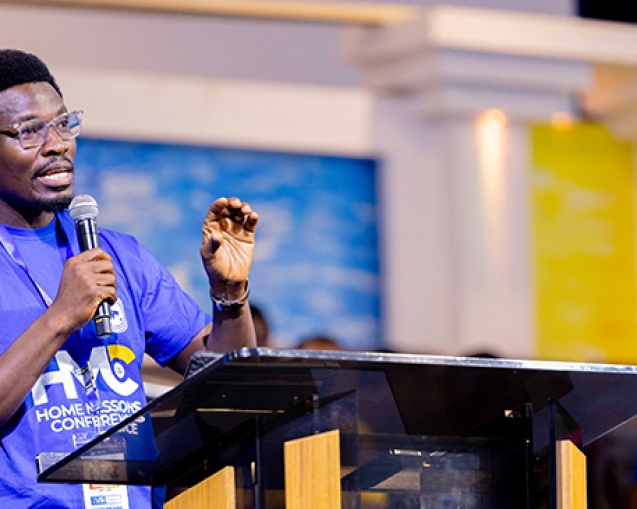In November 2021, a young gentleman appeared on a television set to be auditioned for an opportunity to be mentored by a senior journalist. During the interview, one of the panellists queried him on his previous social media posts, in which he vilified the panel members and other senior journos. Unfortunately, the young man could not justify his actions but sought to suggest that social media posts are sometimes not based on true facts, but intended to generate conversations.
This may be one of many instances where persons who disagree with leadership take to social media to vilify and cast insinuations at such leaders, much of it being personal sentiments with little facts. In a democratic society such as ours, this may not be out of place, considering a linchpin of our constitution is freedom of speech. Democracy itself thrives on collective rulership where voices are supposed to be heard in governance.
Over the years, there has been a general growth in dissatisfaction with leadership across nations: both political and nonpolitical. In 2010, Mohammed Bouazizi, a 26-year-old trader in Tunisia, set himself ablaze as a protest to his treatment by local officials, prompting demonstrations which led to the then president, Ben Ali, stepping down – paving the way for democratic elections in that country. This incident in Tunisia prompted similar protests across North Africa and the Middle East, known as the Arab Springs. These wave of protests and the overwhelming results, made popular to the entire world through social media, inspired many ordinary citizens to, in their own way, rally public sentiments aimed at challenging perceived ills within their respective societies.
Democracy, social media and historic events such as the Arab Springs, have empowered many people to rise and speak to societal issues more boldly. While this has generally kept leaders on their toes, it behoves the Christian to be guided by scripture in confronting issues with leaders both within and without the church.
The 16th chapter of the third book of Moses, Numbers, offers a playbook to guide our conduct as Christians in addressing issues of perceived disagreement with leadership.
Korah, a Levite and first cousin to Aaron and Moses, stood up against the latter, accusing him of exalting himself above the others who make up the Assembly of God. Korah argued that they were all holy and the Lord was among them – Moses and Aaron were no more special than Korah and his cohorts. His view seemed plausible to the chiefs of the congregation, 250 of whom were won over. The Bible described these as well-known men; perhaps respectable people and opinion leaders whose views were not taken lightly. Dathan and Abiram, on the other hand, seemed to be frustrated by the general challenges with wanderings on the desert. It could be inferred from their action that they blamed Moses and Aaron for the hardship Israel was facing. At the end of this confrontation, God affirmed his choice of Moses and Aaron. By opening up the earth and sending fire to destroy the defiant group, He had sent a strong warning throughout the congregation that He would not countenance any rebellion against His chosen.
There are some lessons from this story, as well as guidance provided throughout scripture, which the Christian can glean to guide his conduct towards leaders, so one does not stand the risk of defiance against those God has placed in authority.
First, in any called congregation, there are some who are chosen to lead in specific areas. Within God’s chosen community of Israel, there were some chosen as leaders of the clans, Levites chosen to serve in the tabernacle (this is where Korah belonged), Aaron and his sons chosen as priests among the Levites, and Moses chosen to lead the entire congregation of God’s people (Israel). The bible says in Romans 13:1 (ESV) ‘Let every person be subject to the governing authorities. For there is no authority except from God, and those that exist have been instituted by God’. If God has divinely placed others as leaders in the church or society, we must obey them in all humility. Our reverence for God is expressed in reverence for those he has chosen to lead.
Next, standing up to someone God has put in authority is standing up to God himself. Korah was able to rally support from leaders within the community, thinking he had a valid course. Unfortunately, he was on a path to self-destruction, as this turned out to be a confrontation with God Himself. Romans 13:2 says ‘Therefore whoever resists the authorities resists what God has appointed, and those who resist will incur judgment’. God’s administration of our society and church is done through human vessels we call leaders. A leader therefore does not stand in authority of himself, but only in God’s place.
Again, the voice of the people is not always the voice of God. Although Korah garnered support from a sizeable number of the leaders, their view did not represent God’s will. Social media likes and popular sentiments are not a very good measure of the change that must happen. Although individuals may have reservations about administration within any group (church, nation, social groups, work, etc), it does not warrant defiance or mass action. We could be very wrong in our assertions as a group, no matter how appealing our views may be. Do not be misled by popular support and similar sentiments in taking the wrong step of rebelling against God-ordained leadership.
Lastly, we must be careful to guard our zeal. The Levites were zealous for God and stood when all other tribes went astray in Exodus 32:25-26. The Bible says in Romans 10:2 ‘For I bear them witness that they have a zeal for God, but not according to knowledge’. Zeal, simply explained as a strong desire, can be misplaced. We need to balance our desire with knowledge. Sad to say that many a time, our expression of passion for change is without the attendant knowledge. In many fields of society, it is common truth that experts do not talk much. These people have built a wealth of knowledge that has made them appreciate things, for which reason they would not be in a haste to castigate others. Knowledge tames zeal; without it, actions motivated by zeal alone could be destructive. The next time you want to confront leadership, be careful to be sure you are well informed.
In conclusion, the story of Korah, Dathan, Abiram and the 250 men provides an invaluable lesson to Christians on how to engage leaders on issues we disagree with. Our duty as people being led is, first, to obey God by obeying leadership. We must not discount the authority of God bestowed on our leaders and seek to exalt ourselves any higher. We can offer constructive suggestions through appropriate channels and continually pray for our leaders for God to guide them in their duties. Our standard of conduct is the word of God, and not any other ‘rule’. We should be guided by it always. Social media could mislead us into thinking we are pleading a just cause. Likes, comments, views and shares are not a measure of what God approves: we must be careful not to be swayed by that.
Prior to publicly criticizing God’s chosen leaders, be sure to ask yourself these questions:
- Will my action bring glory to God?
- Is my action motivated by a genuine love for God?
- Have I prayed for the leaders I am about to criticize?
- Have I exhausted all other channels of making my concerns known?
If your answer to any of these is a no, take a breather and reconsider your actions.
The Lord bless our nation. The Lord bless his church. Amen.
Written by P/Overseer Enoch Ofori Kwarteng (Asantekwa District, Kintampo Area)


















